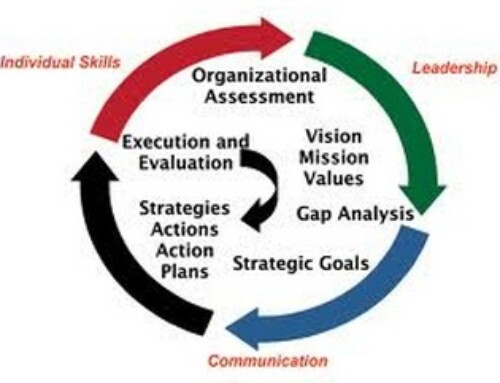 It is always interesting to me when I hear about a company I have never heard of raises a pile of cash. Qualia, a real estate technology company that aims to make the closing process better for consumers just closed a series B round, led by Menlo Ventures, with participation from 8VC and Bienville Capital.
It is always interesting to me when I hear about a company I have never heard of raises a pile of cash. Qualia, a real estate technology company that aims to make the closing process better for consumers just closed a series B round, led by Menlo Ventures, with participation from 8VC and Bienville Capital.
According to Qualia, the home closing is a $40 billion industry. Participants in the closing include lenders, Realtors®, title agents, escrow, home buyers, and sellers; more specifically, title company, law firm, real estate agent/brokerage, mortgage lender, vendor, underwriter, home buyer/seller and institutional buyer/seller.
The company’s website tells an inconvenient truth about the process of buying and selling a home. For the past decade, the lion’s share of real estate innovation has focused on the beginning of the journey – finding a home and signing a contract. From that point on, real estate closings remain stressful and confusing. RESPA may have done a good job of eliminating incentives between agents, Title, and Lenders, but in doing so, they also produced an unworkable process between the groups that are all supposed to serve the customer separately. RESPA has become an obstacle to these groups collaborating. In November of this year. Qualia announced that their platform now supports closing coordination in all 50 States.
 The software that Qualia produces layers on top of the closing processes of the leading title companies. It allows independent title companies and lawyers to manage their title orders in one convenient location. That makes Qualia pretty interesting. With their service, attorneys can choose their title provider from a single platform rather than logging into each platform’s walled garden. It also manages billing, fee schedules, accounting integration, etc. I am not certain, but it may be the first solution of its type that provides a mobile app. I could not help but think about Barristers Title and Escrow – the title firm owned by Howard Hanna that operates in five States. One of their many points of differentiation is that their closing people not only have offices, but they have field representatives that bring the closing to you.
The software that Qualia produces layers on top of the closing processes of the leading title companies. It allows independent title companies and lawyers to manage their title orders in one convenient location. That makes Qualia pretty interesting. With their service, attorneys can choose their title provider from a single platform rather than logging into each platform’s walled garden. It also manages billing, fee schedules, accounting integration, etc. I am not certain, but it may be the first solution of its type that provides a mobile app. I could not help but think about Barristers Title and Escrow – the title firm owned by Howard Hanna that operates in five States. One of their many points of differentiation is that their closing people not only have offices, but they have field representatives that bring the closing to you.
What are their customers saying? I know that promotional customer testimonials are viewed with a grain of skepticism, but you can check this one out. Throughout the video are views of the software so you can see what Qualia delivers. I did not get a demo, but it looks pretty clean and easy.
I did a little exploration of social media to see what brokerage firms I know that are connected to them. I did not see much. It looks like they have not started business development with the brokerage community yet – they are focused on the title offices which I would expect to tow in the brokers and agents as they order title. I found their pricing to be pretty interesting. An agent can track individual deals for free, but the system is limited to communications and updates. Teams pay $99 per user per month, and they get reporting and can track deal flow. Enterprise firms pay $199 per user and get access to audit logs, API Access, master compliance, and Automation.
 I really like the thinking of allowing API access. As WAV Group consultant and systems integration lead, David Gumpper, will tell you, it’s hard for a brokerage to tie their real estate, commercial, mortgage, title, insurance, and other service companies together to deliver an end to end solution. That is what the consumer wants, but each party in the chain makes it difficult. Perhaps Qualia is on to something that full-service firms will be able to take advantage of. Erin Lantz, VP and General Manager of Mortgages at Zillow Group is an advisor to Qualia. With a system like DotLoop, adding over 100 million consumers on Zillow Group plus real estate agents, plus mortgage professionals, the only missing link is title. Perhaps it’s a sign! I did not reach out to Zillow Group for comment.
I really like the thinking of allowing API access. As WAV Group consultant and systems integration lead, David Gumpper, will tell you, it’s hard for a brokerage to tie their real estate, commercial, mortgage, title, insurance, and other service companies together to deliver an end to end solution. That is what the consumer wants, but each party in the chain makes it difficult. Perhaps Qualia is on to something that full-service firms will be able to take advantage of. Erin Lantz, VP and General Manager of Mortgages at Zillow Group is an advisor to Qualia. With a system like DotLoop, adding over 100 million consumers on Zillow Group plus real estate agents, plus mortgage professionals, the only missing link is title. Perhaps it’s a sign! I did not reach out to Zillow Group for comment.





Transaction management is a super crowded space, and getting more and more crowded by the month. I’m unclear what the real problem is… it seems to be a business development/incentive problem, not a technology problem. How do you get all parties to use a single system — that’s the million dollar question.